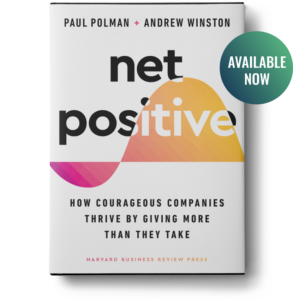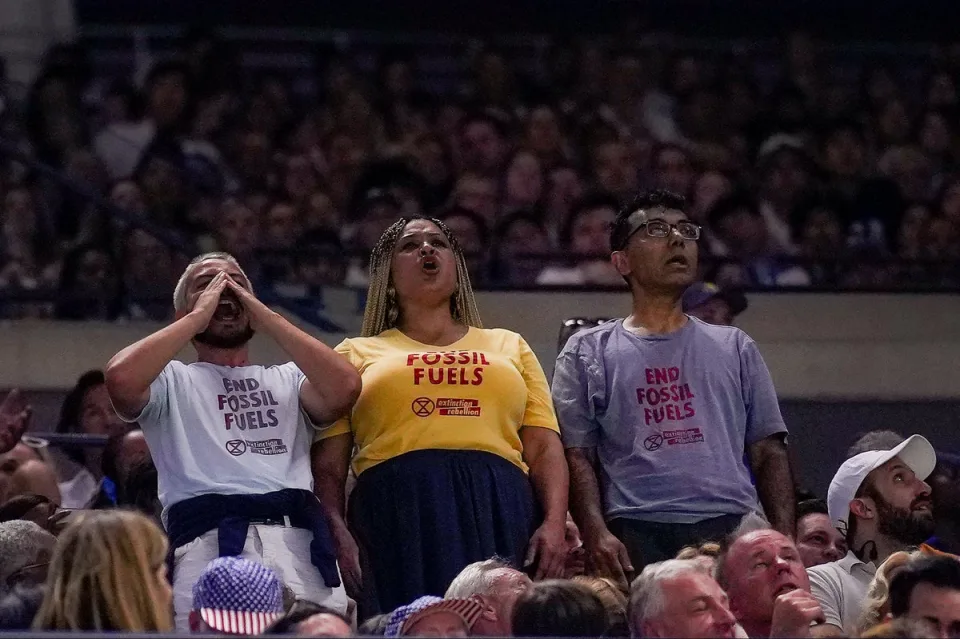Hi all. Let me cut to the chase and say I don’t have the answer to the question I pose here. I don’t think anyone does.
Below is a LinkedIn post I put up a few days ago about the climate protest at the (tennis) US Open. If you have a few minutes, please check out the dialog on LinkedIn about it (and add your thoughts) — unlike in most social media, the discussion is almost entirely civil. My only meta comment is that I wish people would be a bit less absolute about what’s right — civil disobedience has a long history, with usually limited way knowing what is effective and what causes tipping points. It can take years to figure that out. Yes, protests can piss people off, but they can also speak to those who agree with them and maybe embolden them — imagine some of the conversations on the way home in some families with mixed views on climate.
Anyway, this is an important discussion and will become more intense, as will the protests, in the coming years.
I’m a big tennis fan, so I was watching the US Open women’s semifinals last night, when climate protestors stopped the match. One activist even glued his feet to the ground (!).
This is not the first time NGOs like Extinction Rebellion (which claimed credit for this action) have grabbed attention at big public events. In the aftermath, there’s usually some hand-wringing among the climate-concerned among us that these disruptions turn off potential climate allies.
It’s a fair concern and sure, we don’t want to turn people off. But I have a hard time seeing a serious problem with peaceful protests like these. I mean, are there many people that are concerned about climate but in such a tenuous way that they think “oh, those meddling kids are so annoying so I’m not going to do anything”? I suppose it’s possible, but how much were those people going to do anyway?
I guess these actions can feed the climate denier propaganda machine, but they have a clear storyline about how climate change is not really that bad, etc., and they will make up something to be outraged about either way.
Some may criticize the activists and suggest they should use normal channels to foment for change. But let’s be brutally honest: that hasn’t worked (or worked fast enough). Global emissions are still rising, 5 years after the world’s scientists made it clear that we should really cut emissions in half by 2030 to avoid SOME of the worst outcomes. Greta Thunberg and others have gone into the houses of power and yelled “Shame!”…and the country-level policies stemming from the Paris Accord are still not nearly enough to avoid dangerous outcomes.
So who can blame them for making noise wherever it may be heard. Or, as Coco Gauff, the 19-year-old American tennis star who had to wait 45 minutes to win her match said, “hey, if that’s what they felt they needed to do to get their voices heard, I can’t really get upset at it.” [let’s agree that younger citizens are going to be a LOT less disturbed by these theatrics — people do much more to go viral on TikTok for no purpose other than clicks].
I honestly don’t know if these actions change people’s minds one way or the other, but they may help drive action in one important way. As has always been the case, having louder, more aggressive voices out there allows other actors — mainstream env’l NGOs, corporate sustainability advocates, climate-friendly politicians — to have a supposedly measured conversation. We can say “see, look how reasonable we’re being” as we push with logic, data, and passion for an orderly, but rapid, global decarbonization as the minimum action required for human thriving.
I haven’t yet glued my feet to a proverbial (or real) Boardroom floor, but there are many days — as I watch exponentially worse extreme weather around the world and woefully inadequate action in response — where I see the appeal.
Postscript — great dialog below. Thank you Nick McCulloch the link you posted. This article is about how sit-ins and peaceful protests were viewed by Americans in the early 1960s. It’s worth looking at. In short 60%+ of people generally said those actions hurt the cause. But did they?
https://news.gallup.com/vault/246167/protests-seen-harming-civil-rights-movement-60s.aspx
(Photo: Climate protest, US Open, AP)
——————
If you enjoyed this article, please pass it on.
Subscribe to get all of Andrew’s articles in your in-box.



